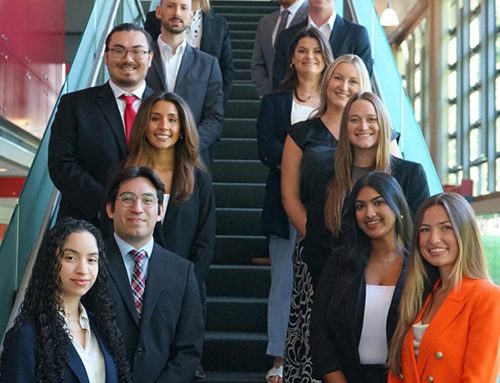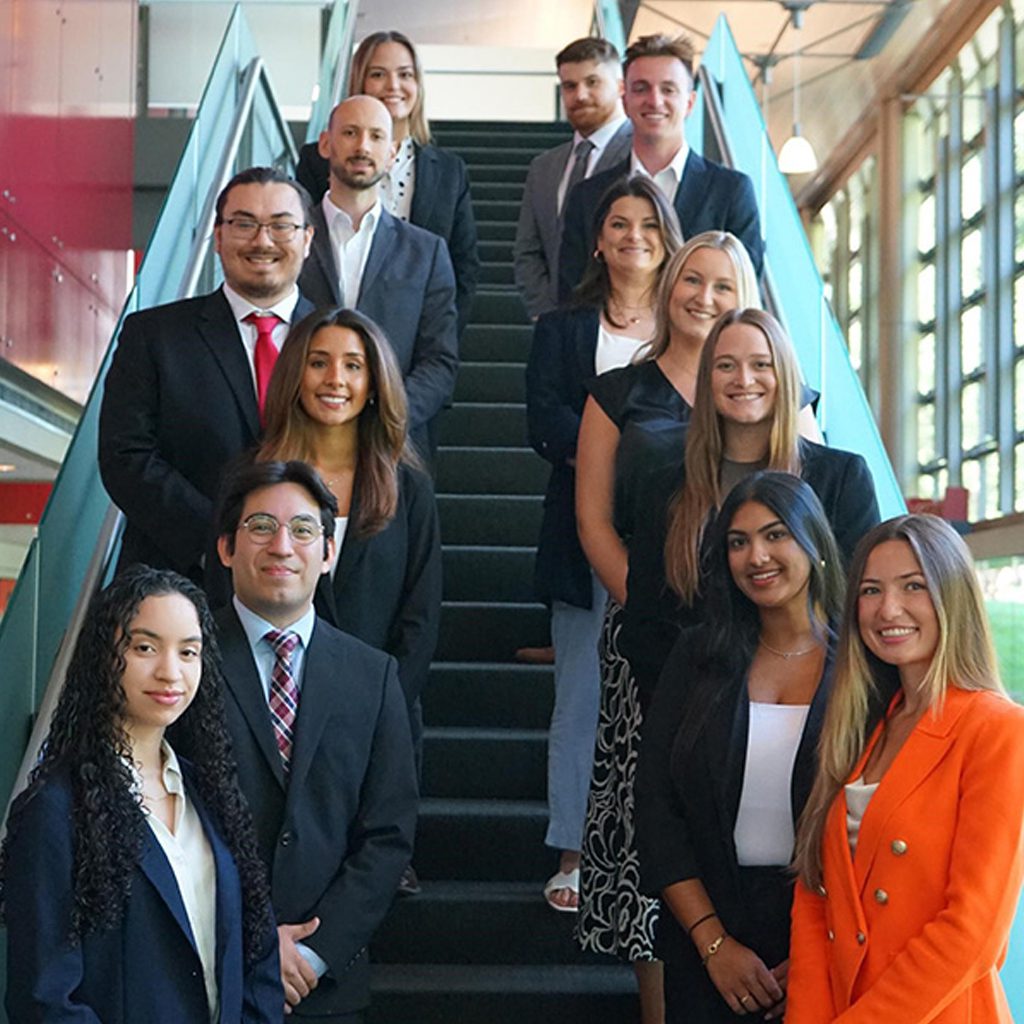Careers Blog
Navigating my career as an AI engineer
Share
Related posts

We recently sat down with Quentin M., a Machine Learning Engineer at Vanguard, to discuss his remarkable journey within the company. Quentin began as an intern and has since transitioned through various roles, ultimately finding his passion in AI, data science, and machine learning. In this blog, Quentin reflects on his journey, the projects that have shaped his career, the lessons learned along the way, and the core values that guide his work at Vanguard.
1. Tell us about your journey at Vanguard
My Vanguard journey began as an intern in the Personal Investor division through Drexel University’s Co-op program. As a full-stack engineer focused on front-end development, I contributed to website modernization, or as I joked “making our websites pretty.” While this was valuable, I wasn’t sure about my long-term career path. The Technology Leadership Program (TLP), a 24-month rotational program was instrumental in my professional development, allowing me to build a strong technical foundation and explore various interests.
My first rotation as a data engineer in Personal Investor, deepened my interest in data work, particularly appreciating its interdisciplinary nature and multifaceted challenges. I then moved into a role within our Advice division as a Machine Learning Engineer (MLE), building technical systems and advanced models for non-technical users, deepening my practical artificial intelligence (AI) implementation skills. Finally, I served as an AI researcher in Global Investment and Financial Systems (GIFS), focusing on AI methodology and models for traders. This experience expanded my theoretical understanding of AI applications in financial contexts.
Today, I’m a full-time MLE in the Center for Analytics Insights (CAI), working on generative AI for our 401(k) business. This journey has honed my technical skills and broadened my perspective on AI’s impact across Vanguard.

2. Can you share more about role and what inspired you to pursue a career as a machine learning engineer?
As an MLE, I work at the intersection of technology and business impact. My role is multifaceted: one day I might be deep in code, scaling AI models for production, and the next, I might be collaborating with data scientists to refine modeling methodologies or working with client service representatives to understand how AI can enhance their work.
Initially, I didn’t set out to become an MLE; I thought my path would lead to data science. However, through the guidance of supportive mentors, I discovered that machine learning engineering aligned perfectly with my skills and interests. What draws me to the AI field is the opportunity to apply advanced artificial intelligence modeling to uncover nonlinear patterns and hidden meanings within data, and then create interfaces that make these insights digestible and accessible to everyone.
The convergence of my software engineering background with my fascination for data science created a natural pathway to machine learning engineering. My engineering degree instilled in me a systematic mindset and a desire to scale and modernize systems, while I also appreciated the exploratory nature of data science—applying theoretical concepts and mathematics to solve complex problems. Machine learning engineering represents the intersection of these worlds, allowing me to contribute to modeling work alongside data scientists while leveraging my core engineering skills.
This balance is why I’m increasingly drawn to identifying as an AI engineer—it truly sits at the junction of both disciplines, combining rigorous engineering practices with the innovative potential of artificial intelligence.

3. Can you share a specific project or achievement at Vanguard that you’re particularly proud of?
One achievement that stands out in my career at Vanguard is the successful deployment of the Call Center Agent Assist project to full production. This generative AI solution helps our client service representatives better serve clients by providing quick access to accurate information. The impact of this project is significant: it has improved the client experience and aligns perfectly with Vanguard’s mission of giving clients the best chance for investment success. By enabling our client service representatives to operate more efficiently, answer questions more accurately and quickly, and provide more informed guidance, we’ve created a better experience for investors.
This is especially important for our 401(k) business, where many clients may have limited financial acumen. These individuals often call with fundamental questions about their investments, and our system helps representatives answer these questions effectively, promoting financial literacy and demonstrating that investing isn’t intimidating but accessible. Knowing that my development work is directly reducing time to insight, simplifying administrative tasks, and positively affecting thousands of people’s financial journeys is incredibly empowering. This project embodies everything I value about my role—using advanced technology to solve real problems and help real people navigate their financial futures.
4. How does Vanguard’s mission and values influence your approach to your work and interactions with clients?
Vanguard’s mission to “take a stand for all investors, treat them fairly, and give them the best chance for investment success” fundamentally shapes my approach to work, even in my technical role. This mission has instilled in me a deep commitment to understanding the investor perspective in everything I build. Even in my technical role, I remind myself that the models and systems I develop impact real investors. Whether I’m assisting traders or developing a generative AI solution for our client service representatives, the end beneficiary is always the investor.
Vanguard’s mission has ultimately transformed my approach from being solely technology-focused to client-centric. I now see my technical expertise to empower both our internal teams and the investors who trust Vanguard with their financial futures.
5. What are the most rewarding aspects of your job?
The most rewarding aspects of my role at Vanguard are the freedom and support to explore my interests and passions beyond my core responsibilities. My leaders actively encourage side projects that foster professional development. For example, my desire to enhance my data science skills, particularly in natural language processing, was supported by my leader who paired me with a senior data scientist. This mentorship has allowed me to develop competencies in fine-tuning classification models and further expand my technical skills.
Equally rewarding is my role as Chief of Staff for the Black Organization for Leadership and Dialogue (BOLD), crew resource group. This role holds profound personal significance for me.
It has provided me with the opportunity to find community, expand my network and develop senior leadership skills such as strategic thinking and effective meeting facilitation. The support from my leaders for these additional responsibilities demonstrates Vanguard’s genuine commitment to the holistic growth of all employees.
What makes these experiences particularly meaningful is the culture at Vanguard, where curiosity is not just permitted but actively encouraged and rewarded. This environment allows me to authentically pursue growth in multiple dimensions simultaneously, making my work both fulfilling and impactful.


6. What advice would you give to anyone interested in pursuing a career in machine learning engineering?
For anyone interested in pursuing a career in machine learning engineering, here are some key pieces of advice:
1. Build a Strong Foundation: Start by developing core engineering and mathematical skills. These form the essential groundwork for everything else. My own journey began with a focus on these fundamentals, which provided a solid base for more advanced topics.
2. Progress Gradually: Move step-by-step into more specialized areas. After mastering core competencies, I built skills in data and database management. This knowledge helped me understand systems engineering from a model-support perspective, which was crucial before diving into data science.
3. Be Patient and Methodical: Don’t rush into advanced roles without the necessary foundational skills. Patience and a methodical approach have been key to my success. Jumping directly into a data scientist role without a strong foundation would have been much more challenging.
4. Develop Strong Communication Skills: Effective communication is vital. As a machine learning engineer, you need to be able to translate complex technical concepts into language that resonates with various stakeholders, including non-technical team members and business leaders.
5. Understand Business Context: It’s crucial to understand the business implications of your work. Technical solutions should serve business needs, and recognizing this relationship can significantly enhance the quality and impact of your projects.
Learn more about Data Science and Machine Learning at Vanguard.




















